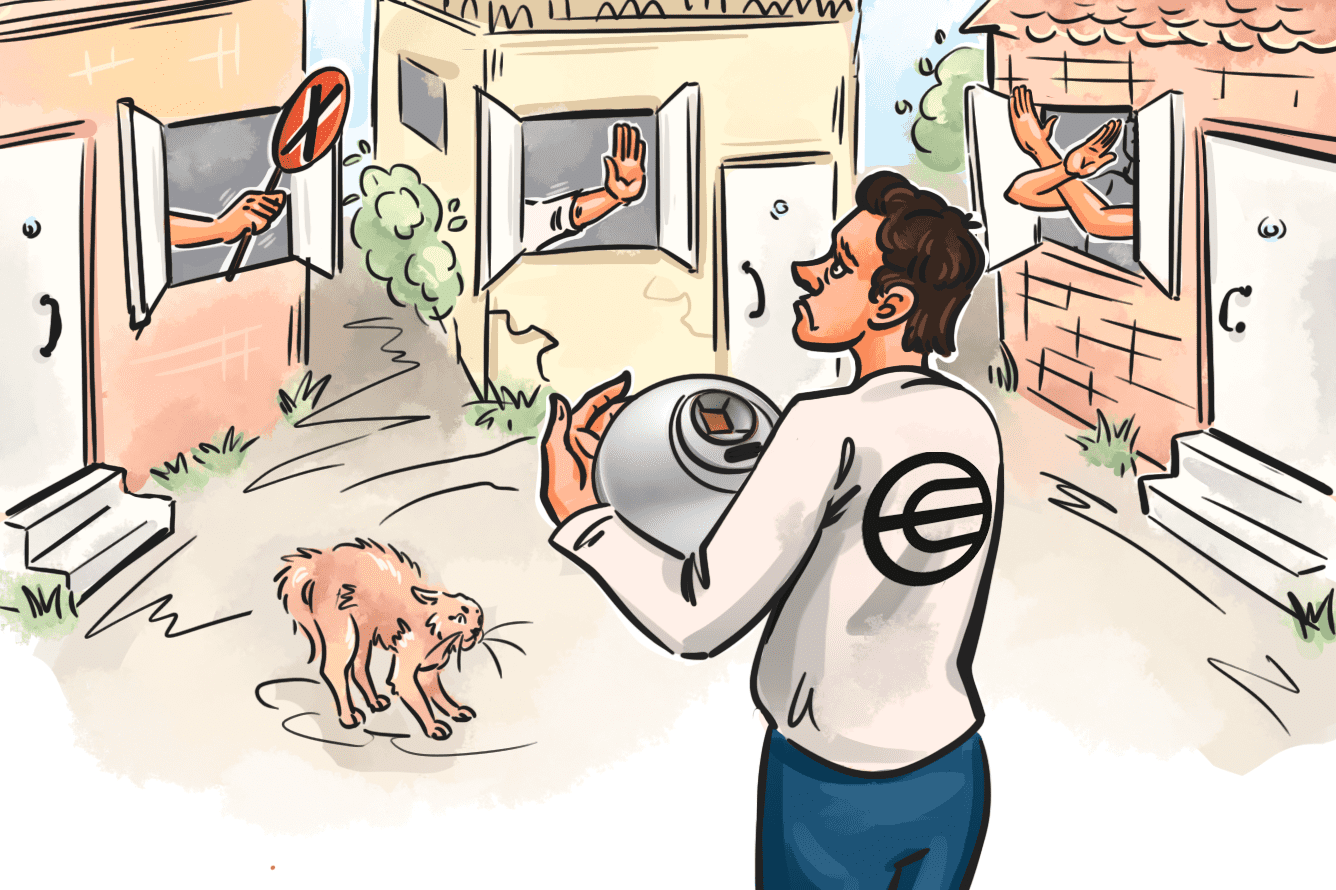
Governmental authorities across the globe are putting up a fight against Worldcoin, the cryptocurrency project from OpenAI’s CEO, Sam Altman, that promises to give everybody on earth an unforgeable “digital passport”, and is offering a $50 reward to those who take part.
Worldcoin's launch took place two weeks ago when in-person iris scanners named Orbs were installed in 35 different cities around the world. But the reception so far hasn’t exactly been the warmest. Labelled “dystopian”, “Orwellian”, and a “complete scam” in pretty much every online and traditional discussion forum, Worldcoin is also facing increasing governmental scrutiny.
5 out of the 20 countries where it set up its iris-reading hardware, produced by affiliated company Tools for Humanity, have devoted resources to investigate the company’s activities.
Of those, Argentina is the latest.
Yesterday, The Argentian Agency for Public Information Access (AAIP) announced on the official government website that it was starting a formal investigation into the San Fransciso-Berlin-based company over its treatment of private citizens’ data.
Worldcoin abides by the EU general data protection regulation (GDPR), which is one of the toughest in the world. Nonetheless, whether that is considered enough to protect Southern-Hemisphere users remains to be seen.
Biometric data can’t be altered or recovered when hacked, which is why AAIP is equally concerned that users are not being properly informed regarding the dangers they are incurring when signing up for a World ID.
In Europe, the U.K.'s data regulator entity told Reuters the day after the Worldcoin launch that it would be conducting “further enquiries” into the project activities and data protection measures.
French data protection watchdog CNIL has also started investigations to clarify the legality of data collection and the conditions the project has for storing biometric data.
In Germany, investigations into Worldcoin’s activities started last year while it was still in its pilot phase due, propelled by concerns about its collection of “sensitive data at a very large scale”.
The president of the Bavarian State Regulator, Michael Will, told Reuters that "these technologies are at first sight neither established nor well analysed for the specific core purpose of the processing in the field of transferring financial information.”
However, in no country has the government action against Worldcoin been as strong as in Kenya.
On August 2nd, the East-African government took Sam Altman’s Orbs off the streets after previously warning its citizens about the dangers of giving their biometric information away. Immaculate Kassait, Kenya's Data Commissioner, justified the action by stating that Tools of Humanity "did not disclose its true intentions during registration.”
Later on, Kenyan authorities took a step further in its Worldcoin crackdown by raiding the company’s warehouse in Nairobi so they could retrieve the private citizen’s data stored in the Orbs.
The team behind World ID has meanwhile stated its willingness to cooperate with Kenyan authorities so that it can resume its activities in the country, guaranteeing that its “Orbs” don’t keep any private information after registry and that its privacy data policy allows citizens to at any time revoke the consent given to Worldcoin for processing their data.
Worldcoin has stated that its decision to launch in Kenya was motivated by the wish to have an “inclusive” project, a narrative running against the criticism it has been receiving about installing Orbs in low-income countries.
The project has an incentive scheme in place whereby it gives $50 worth of its native cryptocurrency (WDC) at the time of registration, followed by continuing weekly deposits for an unspecified amount of time.
Giving biometric data away should not be a financial decision, yet in a country where the minimum wage sits at slightly over $100, hundreds of thousands of Kenyans were incited by the promise of half a month’s pay to line up by the Orbs.

